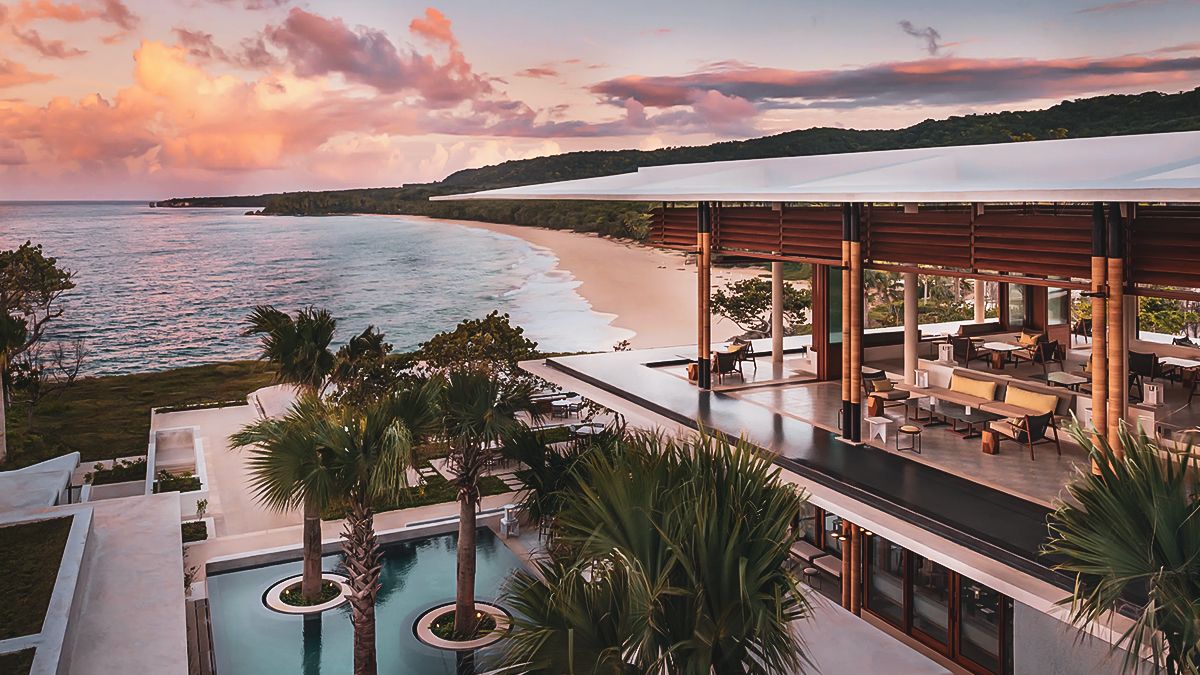Table of contents
Whether it’s for your own use or you decide to become a property investor in Bali, building a villa in Bali can be an exciting, nerve-wracking, or terrible process. Or a bit of all of that.
Since Emerhub Bali works with hundreds of property investors of all scales, we gathered their (and our own) experience to get you the best chances of turning your Bali villa project into a success.
Note that this article specifically focuses on building villas in Bali. We also have a more general article for buying property in Bali safely.
Before you start building a villa in Bali
Land ownership titles in Bali
Foreigners are only allowed to hold leasehold titles in Bali (or anywhere in Indonesia). This gives you the rights for the land for 40 to 80 years, during which you can also sell the land. Freehold licenses are reserved for Indonesian nationals.
Conducting due diligence in Bali
The easiest rule of thumb to keep in mind is that if a (property) deal sounds too good to be true, it probably is. You found a land or an existing property below the market price? Perhaps the seller had a sad story of why they are willing to sell at such a low price.
Indonesians are very pragmatic when it comes to land and property. Even if a listing says that a seller is in a hurry, perhaps attacked by loan sharks, it’s unlikely that they are going to sell anything below market value. So just stick to paying a fair price for a fair deal.
Let’s look at how to make sure the deal is “fair”.
1. Zoning laws in Bali
Every piece of land in Bali is allocated to a “zone” which determines what you can do with it. There are various types of zones such as:
- Residential
- Tourism
- Agricultural
- Forestry, etc.
The type of zone is crucial. Majority of bad property deals are done because the buyer buys land only to find out that they are not actually allowed to build anything on it or not the type of building they planned to.
For example, a few years ago our property investments company found land in Canggu that was perfect for building villas and the price was very reasonable. We thought we had hit a jackpot until our property due diligence team found out that the land was dedicated as the “flyover zone” which meant that the government is allowed to take over your land at the NJOP value (a price assigned to a land by the local government for tax purposes).
Note that your notary is not required to conduct your due diligence on your behalf. That’s why we always recommend spending a few thousand dollars on property due diligence to avoid losing tens or hundreds of thousands.
2. Ownership certificates
The second obstacle for buying property in Bali is to be sure that the person selling you their land is actually authorized to do so. It might seem easier than it actually is.
The key aspect is to make sure that the seller gives you a complete list of certificates with their numbers so that the due diligence team (they actually do it on your behalf) can run through the certificates with the National Land Institution (BPN).
If the seller is reluctant at this step then take it as a major red flag. They most likely have something to hide.
It’s unlikely that you’ll end up with a con artist that pretends to own a land that they actually have nothing to do with. Most commonly the ownership has one of the following issues:
- Complicated inheritance issues. If the certificate holder dies, they might have several children that all have different ideas of what to do with the property. All of them have to agree to the transaction.
- Both spouses have to agree to the deal. For example, we’ve had several cases where the seller has a spouse they haven’t lived together with for years but who has the legal rights to block the sale. Relationships can be complicated, make sure they don’t become your problems.
3. Property taxes
The third and final part of conducting the property due diligence in Bali is to check the land for any tax obligations, such as unpaid property taxes.
The good news is that once you have completed your land due diligence, the most complicated part (from the legal perspective) of building a villa is completed. Now let’s get to the fun parts.
Contact our Bali office to learn more about what sort of due diligence activities you should conduct specifically in Bali via [email protected].
Buying land in Bali
Choosing a regency in Bali for your villa project
The first step of building a villa is obviously having land to build it on. By now, you probably already know your favorite areas in Bali but if you’re wondering where other foreigners are investing in property, then here’s the ranking based on the number of foreign investments going to different regencies of Bali:
The process of purchasing land in Bali
1. Paying a downpayment
We just covered the basics of conducting land due diligence before you purchase land in Bali. In reality, the sellers will not give you the time for it unless you pay a downpayment that indicates to the seller that you are serious about the transaction and have the funds to proceed.
The downpayment will sit in escrow and will be returned if the due diligence fails.
2. Choose a notary
We recommend that you, not the seller, chooses the notary. Let us know if you need recommendations for a reliable notary in your area. Note that notaries cover specific areas so if you buy property in multiple locations, you’ll have to use multiple notaries.
3. Appoint a buyer representative
Unless you live in Bali, and/or have a lot of free time on your hands, and speak fluent Indonesian, it’s a standard procedure to appoint a buyer representative who goes to the frequent meetings in the notary office on behalf of you. Emerhub provides that service for our customers.
Choosing an architect in Bali
You’ve found the land, made sure everything checks out legally, paid for the land, and are now ready to start building a villa in Bali.
The following steps are not necessarily unique for Bali but we’ll share some of our own experiences that give you a local context.
Common pitfalls with choosing an architect in Bali
Bali attracts a lot of creative people from all over the country and the world. So you’ll have no trouble finding someone who claims to be able to design you your dream villa.
There are a couple of things to watch out for though:
- There are many foreigners (not all of them, obviously) claiming to represent an international firm that is actually delegating all of the work to a local company. The service just comes with an “international” price tag. Suggest meeting in their office rather than in a coffee shop.
- Check that the firm actually has experience with international clients. The style preferences of local and western clients tend to be very different. E.g. one likes shade and the other wants big windows. Know what you want and choose a firm that has experience with similar projects.
- Don’t pay all the money at once. For one of our projects, the “international firm” sent us an AutoCAD drawing where they forgot to change some of the details of the previous client. We gave up the first payment and found another firm that was more dedicated to our project.
Services to request from an architectural firm in Bali
The typical cost of a good architect in Bali for a standard-sized villa starts from about 10,000 USD in 2022. This amount is big enough that you will be able to receive bids from multiple firms and get a full service, including:
- MEP consultant for electrical plans and installation;
- Structural consultant for developing structural drawings from the architect’s concept;
- Quantity Surveyor to ensure that Bill of Quantities are submitted correctly and everything is purchased at market price and appropriate quantities.
Many architects also have preferred contractors they have experience working with in the past. This is often a good option because you’ll want your architect to be in constant communication with your contractor to make sure everything is built as planned or that the revisions during the construction process are done for the right reasons not just to cut corners.
Submitting a License to Build (IMB or PGB)
Once you have your building planned, the next step is to get a permit for actually being allowed to build it – the IMB (recently renamed as Persetujuan Bangunan Gedung (PGB)).
Now, if you come from a country where building permits go through a lengthy approval process (e.g. almost any western country), this process takes significantly less time in Bali.
Once you receive the zoning approval, you can start building and apply for the PBG in parallel. The PBG is issued usually within 3-5 months.
Opening a tender for construction
You now have your land, the drawings, the zoning approval, and you are ready to start building.
As mentioned earlier, it’s common to use a contractor that your architect has experience working with. In our experience, this helps to make sure that the contractor is closely supervised by the architect and that the final outcome is as close as possible to the original designs.
Naturally, you can also choose your own contractor.
Either way, we recommend opening a tender and receiving bids from multiple firms and then deciding based on their references, communication, and also by price.
The standard construction costs in 2022 start from 500 USD/m2 (standard quality) all the way to 1500 USD/m2 (luxury villas) and beyond.
Paying your contractor
Contractors in Bali have two preferred methods of getting paid:
- You pay for each milestone
- You pay a monthly fee
It’s almost always better to pay per milestone. It aligns your incentives – both of you want to get the job done as efficiently as possible. Monthly payment is better if you expect to make a lot of changes throughout the process and don’t want to limit yourself to the agreed milestones.
Tax aspects to consider when building a villa in Bali
The most tax-efficient way to build a villa in Bali is to register a company and do everything under it.
If you build a villa as a company, make sure that you deduct withholding tax from every payment. This is your, or your tax advisor’s, responsibility. The tax payments also become deductible for your annual corporate income tax.
Conclusion
We hope that this article gave you a general understanding of how to build a villa in Bali. As long as you come prepared, avoid some of the pitfalls highlighted in this article, and don’t build something completely out of touch with the market, you are likely going to have decent returns on your property investment in Bali in the long run. Or have an amazing place to stay yourself.
Get in touch with Emerhub Bali by filling out the form below to discuss your villa project. We can also jump into your existing projects and help you solve any problems that you might have run into.







